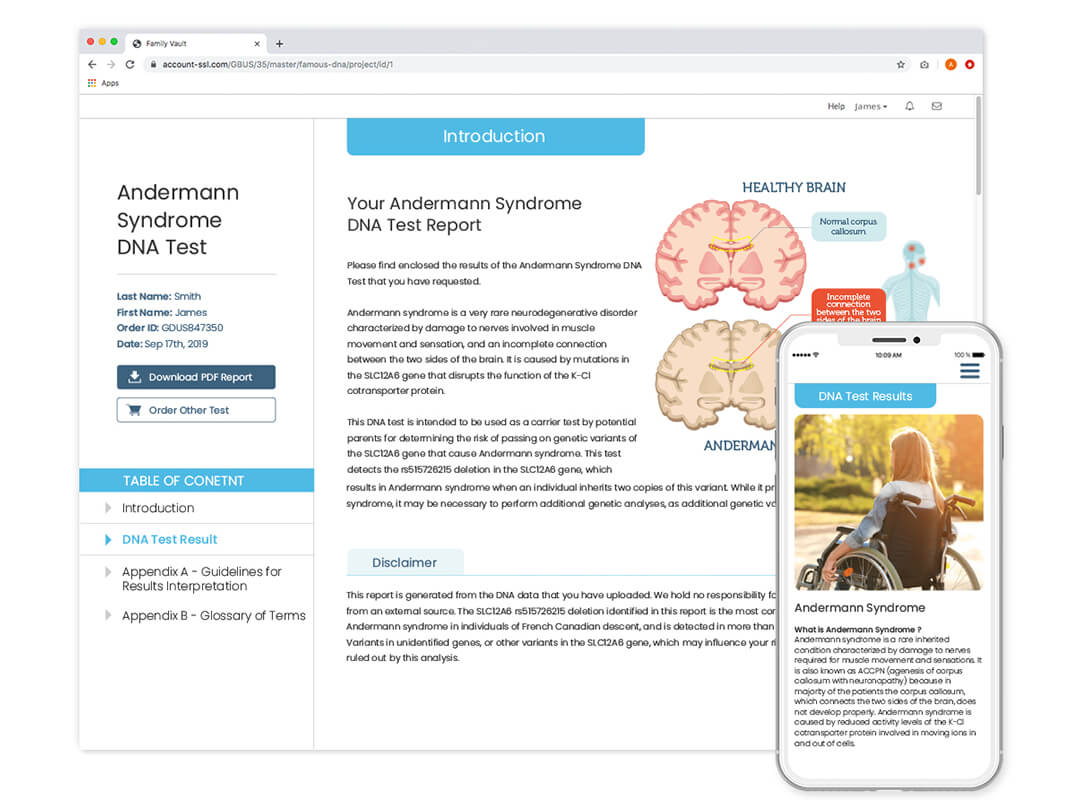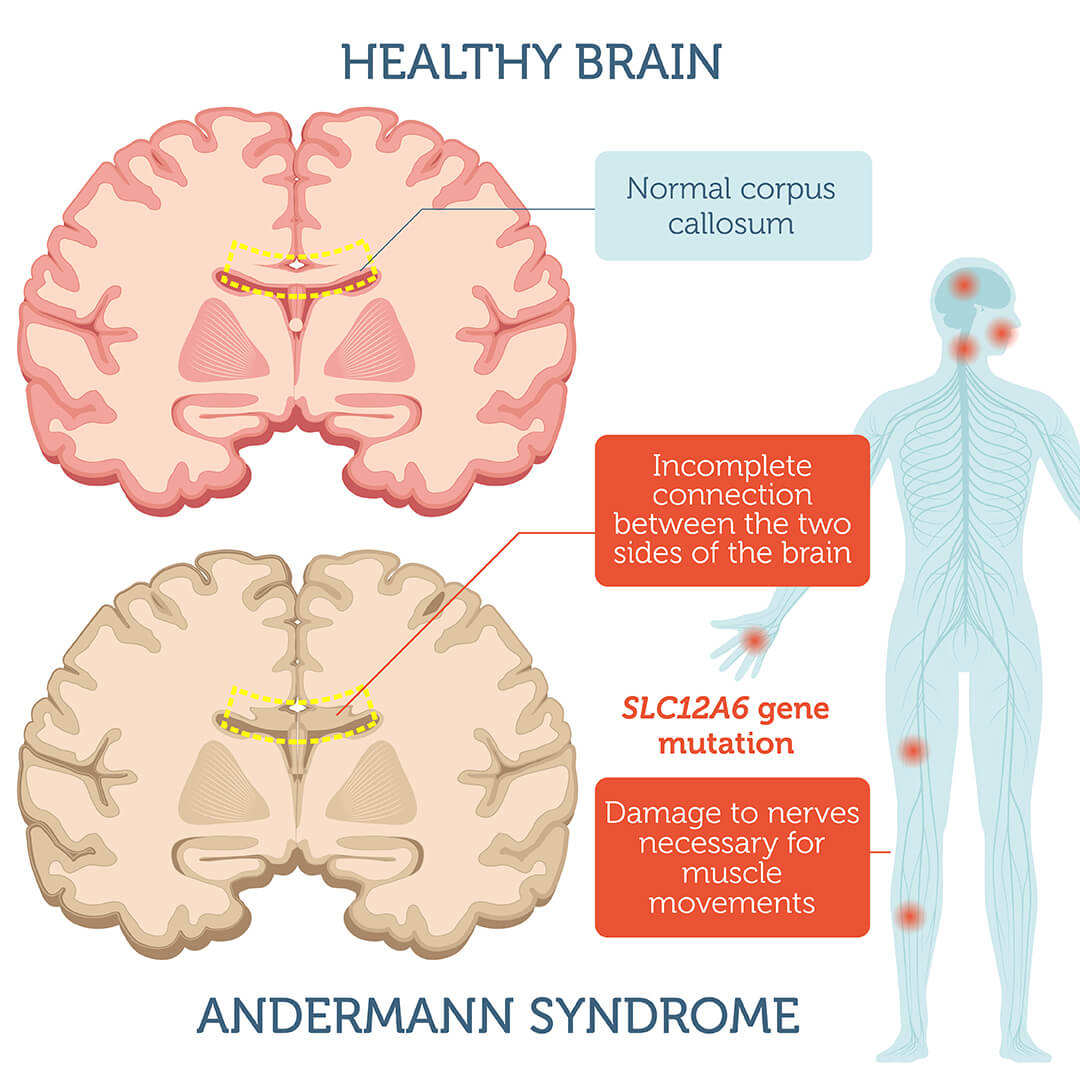Andermann Syndrome DNA Test
Are you a genetic carrier for Andermann syndrome? Find out with this DNA Test.
- Detects a SLC12A6 gene variant linked to Andermann syndrome
- Characterized by damage to nerves required for muscle movement and sensations
- Carrier screening test intended for couples who are planning to become pregnant
- 100% private and confidential online results
Already have DNA markers? Sign in and upload your data to view results.
Need to take the DNA Test? Order our easy-to-use swab kit.





